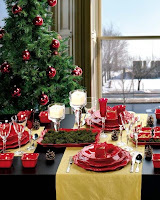How can mothers and fathers who parent apart approach holiday giving?
The University of Minnesota Extension suggests that, when possible, both parents should communicate with each other about their child's wants and needs. Wants are those things she says she can't live without, but you know aren't necessary, such as a new video game. Needs on the other hand, are things that are necessary to have - a new jacket, underwear, clothes that fit and a host of other items that chip away at the family budget.
Once the wants and needs are determined, the parents can decide who will purchase which items from both lists. Balancing wants and needs is also much easier on each parent's budget - and children will benefit from having some of the items they have on their wish list and others they will use every day. Sometimes a child's needs are different at each household. In this case, the child may want to make a list for each parent of what they wish for and the parents may decide individually what to give.
Parents who parent apart can and do encounter pitfalls. Trying to be the parent who spends the most money on your children's gifts can turn giving into a contest where each parent tries to out-do the other with lavish and not very useful gifts. This is no gift for your child - giving your child too much, too soon, that doesn't meet their real needs, is a set up for overindulgence. You won’t win this war!
Criticizing the other parent's gift challenges your child's sense of loyalty to the other parent. When a child can't enjoy a gift because of your hostility, you are undermining your child's relationship with both of you. Be supportive, even if you don't share their excitement.
Sometimes gifts are specific to a particular household, and should stay there. However this isn't always the case. Remember, the gift is your child’s and they should be able to enjoy it at both homes. This is particularly true when the gift helps comfort your child.
It’s not always easy communicating with your child’s other parent, but it’s certainly worth the effort!
The University of Minnesota Extension suggests that, when possible, both parents should communicate with each other about their child's wants and needs. Wants are those things she says she can't live without, but you know aren't necessary, such as a new video game. Needs on the other hand, are things that are necessary to have - a new jacket, underwear, clothes that fit and a host of other items that chip away at the family budget.
Once the wants and needs are determined, the parents can decide who will purchase which items from both lists. Balancing wants and needs is also much easier on each parent's budget - and children will benefit from having some of the items they have on their wish list and others they will use every day. Sometimes a child's needs are different at each household. In this case, the child may want to make a list for each parent of what they wish for and the parents may decide individually what to give.
Parents who parent apart can and do encounter pitfalls. Trying to be the parent who spends the most money on your children's gifts can turn giving into a contest where each parent tries to out-do the other with lavish and not very useful gifts. This is no gift for your child - giving your child too much, too soon, that doesn't meet their real needs, is a set up for overindulgence. You won’t win this war!
Criticizing the other parent's gift challenges your child's sense of loyalty to the other parent. When a child can't enjoy a gift because of your hostility, you are undermining your child's relationship with both of you. Be supportive, even if you don't share their excitement.
Sometimes gifts are specific to a particular household, and should stay there. However this isn't always the case. Remember, the gift is your child’s and they should be able to enjoy it at both homes. This is particularly true when the gift helps comfort your child.
It’s not always easy communicating with your child’s other parent, but it’s certainly worth the effort!




